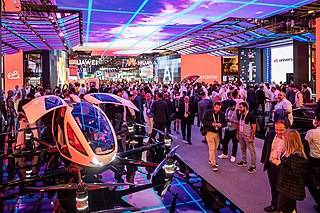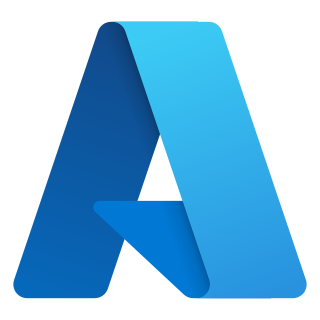Related Research Articles

A video game developer is a software developer specializing in video game development – the process and related disciplines of creating video games. A game developer can range from one person who undertakes all tasks to a large business with employee responsibilities split between individual disciplines, such as programmers, designers, artists, etc. Most game development companies have video game publisher financial and usually marketing support. Self-funded developers are known as independent or indie developers and usually make indie games.

The Game Developers Conference (GDC) is an annual conference for video game developers. The event includes an expo, networking events, and awards shows like the Game Developers Choice Awards and Independent Games Festival, and a variety of tutorials, lectures, and roundtables by industry professionals on game-related topics covering programming, design, audio, production, business and management, and visual arts.

Facebook is an online social media and social networking service owned by American technology giant Meta Platforms. Created in 2004 by Mark Zuckerberg with four other Harvard College students and roommates Eduardo Saverin, Andrew McCollum, Dustin Moskovitz, and Chris Hughes, its name derives from the face book directories often given to American university students. Membership was initially limited to Harvard students, gradually expanding to other North American universities. Since 2006, Facebook allows everyone to register from 13 years old, except in the case of a handful of nations, where the age limit is 14 years. As of December 2022, Facebook claimed 3 billion monthly active users. As of October 2023 Facebook ranked as the 3rd most visited website in the world with 22.56% of its traffic coming from the United States. It was the most downloaded mobile app of the 2010s.

The Linux Foundation (LF) is a non-profit organization established in 2000 to support Linux development and open-source software projects. In addition to providing a neutral home where Linux kernel development can be protected and accelerated, the LF is dedicated to building sustainable ecosystems around open-source projects to accelerate technology development and commercial adoption.

GITEX GLOBAL is a global tech show, organised by, and taking place at, the Dubai World Trade Centre in the United Arab Emirates. The 42nd edition in October 2022 hosted more than 5,000 companies and over 170,000 attendees from 176 countries, spanning two million sq. ft of exhibition space, matching the scale of 33 football fields. GITEX GLOBAL 2022 presented its most empowering curation with seven multi-tech themes experimenting in the metaverse, a decentralised future of the internet, and a sustainable global digital economy.

GitHub, Inc. is a platform and cloud-based service for software development and version control, allowing developers to store and manage their code. It uses Git software, providing the distributed version control of Git plus access control, bug tracking, software feature requests, task management, continuous integration, and wikis for every project. Headquartered in California, it has been a subsidiary of Microsoft since 2018.

Microsoft Azure, often referred to as Azure, is a cloud computing platform run by Microsoft. It offers access, management, and the development of applications and services through global data centers. It also provides a range of capabilities, including software as a service (SaaS), platform as a service (PaaS), and infrastructure as a service (IaaS). Microsoft Azure supports many programming languages, tools, and frameworks, including Microsoft-specific and third-party software and systems.

Project Milo was a project in development by Lionhead Studios for the Xbox 360 video game console. Formerly a secretive project under the early codename "Dimitri", Project Milo was unveiled at the 2009 Electronic Entertainment Expo (E3) in a demonstration for Kinect, as a "controller-free" entertainment initiative for the Xbox 360 based on depth-sensing and pattern recognition technologies. The project was a tech demo to showcase the capabilities of Kinect and was not released, despite conflicting reports that the project was an actual game.

Instagram is an American photo and video sharing social networking service owned by Meta Platforms. It allows users to upload media that can be edited with filters, be organized by hashtags, and be associated with a location via geographical tagging. Posts can be shared publicly or with preapproved followers. Users can browse other users' content by tags and locations, view trending content, like photos, and follow other users to add their content to a personal feed. A Meta-operated image-centric social networking service, available on iOS, Android, Windows 10, and the web. Users can take photos and edit them using built-in filters and other tools, then share them on other social media platforms like Facebook. It supports 25 languages including English, Spanish, French, Korean, and Japanese.

Microsoft Build is an annual conference event held by Microsoft, aimed at software engineers and web developers using Windows, Microsoft Azure and other Microsoft technologies. First held in 2011, it serves as a successor for Microsoft's previous developer events, the Professional Developers Conference and MIX. The attendee price was (US)$2,195 in 2016, up from $2,095 in 2015. It sold out quickly, within one minute of the registration site opening in 2016.

Parisa Tabriz is an Iranian-American computer security expert who works for Google as a Vice President of engineering. She chose the title "Security Princess" on her business card.
Bonnie Ross is an American video game developer. She served as Corporate Vice President at Xbox Game Studios, and was the head of 343 Industries, the subsidiary studio that manages the Halo video game franchise. Ross studied technical writing and computer science in college, and worked at IBM before getting a job at Microsoft. She worked on a number of PC and Xbox games, becoming a general manager at Xbox Game Studios.

OpenAI is an American artificial intelligence (AI) research organization consisting of the non-profit OpenAI, Inc. registered in Delaware and its for-profit subsidiary OpenAI Global, LLC. OpenAI researches artificial intelligence with the declared intention of developing "safe and beneficial" artificial general intelligence, which it defines as "highly autonomous systems that outperform humans at most economically valuable work". OpenAI has also developed several large language models, such as ChatGPT and GPT-4, as well as advanced image generation models like DALL-E 3, and in the past published open-source models.
Amazon Alexa or Alexa is a virtual assistant technology largely based on a Polish speech synthesizer named Ivona, bought by Amazon in 2013. It was first used in the Amazon Echo smart speaker and the Echo Dot, Echo Studio and Amazon Tap speakers developed by Amazon Lab126. It is capable of natural language processing (NLP) for tasks such as voice interaction, music playback, creating to-do lists, setting alarms, streaming podcasts, playing audiobooks, providing weather, traffic, sports, other real-time information and news. Alexa can also control several smart devices as a home automation system. Alexa capabilities may be extended by installing "skills" such as weather programs and audio features. It performs these tasks using automatic speech recognition, NLP, and other forms of weak AI.
Ooblets is a life simulation video game developed and published by Glumberland. It was released via early access on July 15, 2020, for Windows and Xbox One. Its Windows release was exclusive to the Epic Games Store until October 2023. The game launched on September 1, 2022, for Nintendo Switch, Windows, and Xbox One.

Deepfakes are synthetic media that have been digitally manipulated to replace one person's likeness convincingly with that of another. Deepfakes are the manipulation of facial appearance through deep generative methods. While the act of creating fake content is not new, deepfakes leverage powerful techniques from machine learning and artificial intelligence to manipulate or generate visual and audio content that can more easily deceive. The main machine learning methods used to create deepfakes are based on deep learning and involve training generative neural network architectures, such as autoencoders, or generative adversarial networks (GANs). In turn the field of image forensics develops techniques to detect manipulated images.

Timnit Gebru is an Eritrean Ethiopian-born political activist and computer scientist who works on algorithmic bias and data mining. She is an advocate for diversity in technology and co-founder of Black in AI, a community of Black researchers working in artificial intelligence (AI). She is the founder of the Distributed Artificial Intelligence Research Institute (DAIR).

Generative Pre-trained Transformer 3 (GPT-3) is a large language model released by OpenAI in 2020. Like its predecessor GPT-2, it is a decoder-only transformer model of deep neural network, which uses attention in place of previous recurrence- and convolution-based architectures. Attention mechanisms allow the model to selectively focus on segments of input text it predicts to be the most relevant. It uses a 2048-tokens-long context and then-unprecedented size of 175 billion parameters, requiring 800GB to store. The model demonstrated strong zero-shot and few-shot learning on many tasks.

DALL·E, DALL·E 2, and DALL·E 3 are text-to-image models developed by OpenAI using deep learning methodologies to generate digital images from natural language descriptions, called "prompts". The original DALL·E was revealed by OpenAI in a blog post in 5 January 2021, and uses a version of GPT-3 modified to generate images. In 6 April 2022, OpenAI announced DALL·E 2, a successor designed to generate more realistic images at higher resolutions that "can combine concepts, attributes, and styles". In September 2023, OpenAI announced their latest image model, DALL·E 3, capable of understanding "significantly more nuance and detail" than previous iterations.

Lisa S. Jones is an American businesswoman and entrepreneur, best known for being the founder of Atlanta-based video email company EyeMail Inc. As both a black and woman-owned business, EyeMail Inc. is classified as a Minority Women Business Enterprise (MWBE). Her company began as a start-up, eventually growing exponentially through partnerships with Microsoft, Delta Air Lines, Time Warner, Porsche North America, the Atlanta Tech Village, PepsiCo and, most notably, The Coca-Cola Company, through which EyeMail Inc. got selected by Microsoft as a premier MWBE supplier in digital marketing. Prior to dedicating herself to entrepreneurship, Jones worked in supplier diversity for telecommunications provider AT&T, and continues to develop a career as a thought leader and public speaker in the matter.
References
- ↑ "DevTernity IT conference set to start in Rīga". Latvian Radio. 30 November 2017. Retrieved 6 December 2023.
- ↑ "DevTernity announces postponing of 2020 conference to 2021". 10 July 2020. Retrieved 6 December 2023.
- ↑ "DevTernity announces online-only format". 22 July 2021. Retrieved 6 December 2023.
- ↑ Claburn, Thomas (28 November 2023). "DevTernity conference collapses amid claims women speakers were faked". The Register. Retrieved 6 December 2023. |
- ↑ Gall, Richard (28 November 2023). "Meet 'Anna Boyko': How a Fake Speaker Blew up DevTernity". The New Stack. Retrieved 6 December 2023.
- ↑ "Fake AI-generated woman on tech conference agenda leads Microsoft and Amazon execs to drop out". AP News. 28 November 2023. Retrieved 6 December 2023.
- ↑ Weatherbed, Jess (28 November 2023). "This dev conference organizer seems addicted to making up women". The Verge. Retrieved 6 December 2023.
- ↑ Orosz, Gergely (2 December 2023). "A Tech Conference Listed Fake Speakers for Years: I Accidentally Noticed". Pragmatic Engineer. Retrieved 7 December 2023.
- ↑ Cole, Samantha (27 November 2023). "Founder Is Behind Popular Woman Coding Influencer Account". 404 Media. Retrieved 6 December 2023.
- ↑ Fielding, Sarah (27 November 2023). "A popular female coding influencer's Instagram is apparently run by a man". Endgadget. Retrieved 28 November 2023.
- ↑ Belanger, Ashley (28 November 2023). "Backlash over fake female speakers shuts down developer conference". Ars Technica. Retrieved 6 December 2023.
- ↑ Lung, Natalie (28 November 2023). "Tech Conference Faces Backlash on Claims of Fake Women Speakers". Bloomberg. Retrieved 6 December 2023.
- ↑ Kwan, Wei (28 November 2023). "Microsoft and Amazon Web Services executives are bailing on this tech conference after the organizer was accused of using fake female panelists". Business Insider. Retrieved 6 December 2023.
- ↑ Doyle, Andrea (28 November 2023). "Tech Conference Accused of Creating Fake Women Speakers". Skift Meetings. Retrieved 6 December 2023.
- ↑ Josh, Adams (3 December 2023). "Devternity Developer Conference Invents Fake Female Attendees to Bolster Diversity Credentials". CCN. Retrieved 6 December 2023.